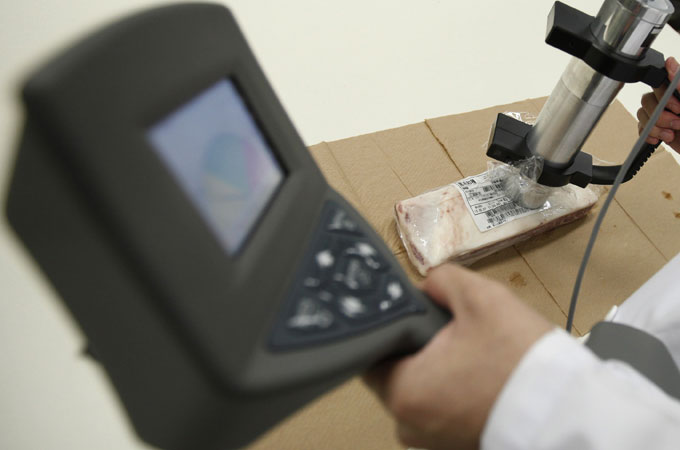Baby milk joins beef and rice on tainted list
Powered formula intended for babies is just another in list of Japanese products said to be contaminated by radiation.

 |
| An employee of a Japanese restaurant conducts a radiation check on a piece of domestic beef [Reuters] |
A major Japanese food manufacturer has recalled 400,000 cans of powdered milk for infants after traces of radiation from Japan’s hobbled nuclear plant were detected in the formula.
Meiji said it did not know how many of the cans had reached consumers, but acknowledged on Wednesday that it was being deluged with queries from worried buyers.
The levels of radioactive caesium detected on Tuesday were well below government-set safety limits, and the company said the amounts were low enough not to have any effect on babies’ health even if they drank the formula every day.
 |
| Levels of food and drink radiation allowed by Japan’s government are higher than in other countries |
But since the March 11 earthquake and tsunami that damaged the Daiichi nuclear plant in Fukushima, radiation levels in several Japanese food products have caused alarm, as both water and soil samples showed high levels of contamination.
Fears of tainted spinach and contaminated drinking water caused panic in March, but there have been concerns regarding other foods:
Rice: Shipments of rice grown in the area near the Fukushima power plant were banned by the Japanese officials after a crop harvested by a farmer in the area – which holds 154 rice farms – contained 630 becquerels of radioactive caesium per kg, compared with the government-imposed cap of 500 becquerels.
Beef: In July Reuters reported that more than 500 beef cattle that ate feed contaminated with radioactive material up to 500 times higher than safety standards was shipped to 10 prefectures of the Japan. Beef shipments from the area were banned until August.
Green tea: Contaminated tea harvests from the Shizouka prefecture – roughly 220km south of the damaged nuclear power plant – were detected in June. The dried leaves contained 679 becquerels per kilogram (with the maximum being 500 becquerels).
Fish: Just how contaminated fish caught in Japanese waters might be is the source of some controversy. The Japanese government has said for months that the fish tested by the Japan Frozen Foods Inspection Corporation were found to be safe, but other agencies, such as the Bulletin of the Atomic Scientists, said that Japan’s contaminated waters were cause for concern.
The plant’s operator, Tokyo Electric Power Company, reported earlier this week that 45 tons of highly radioactive water recently leaked from the plant, with as much as 220 tons being leaked into the sea so far.